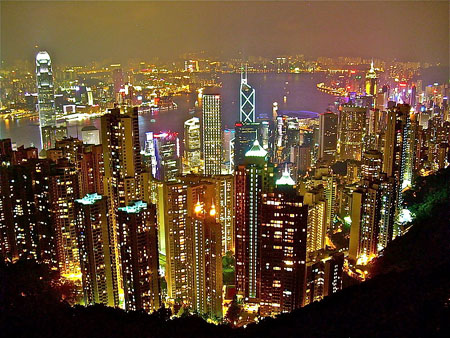Special to WorldTribune.com
The crisis was brewing for months. Storm clouds were gathering around Hong Kong’s splendid bay as China’s communist authorities have put the vice grip squeeze on democratic Hong Kong’s political rights and social freedoms. The world has watched aimlessly until the United States and a few fellow democracies said Stop.
President Donald Trump threw down the gauntlet to Beijing’s leadership. In a measured but tough speech on a wide range of issues implicating China from having dismantled the American industrial economy, profited from unfair trade deals and industrial espionage, the President addressed the Hong Kong crisis head on.

But first he warned poignantly, “The world is now suffering as a result of the malfeasance of the Chinese government. China’s cover-up of the Wuhan virus allowed the disease to spread all over the world, instigating a global pandemic that has cost more than 100,000 American lives.”
The President added, “China has total control over the World Health Organization…we will be today terminating our relationship with the World Health Organization.” Washington will redirect its $440 million WHO funding to other global public health needs.
Earlier in the week the U.S. planned an urgent UN Security Council meeting to address the deteriorating political situation in Hong Kong. China predictably blocked the formal session. Nonetheless the United States and United Kingdom pushed back.
During a subsequent discussion in the Council, U.S. UN Ambassador Kelly Craft stated forcefully, “The PRC’s actions to undermine the Sino-British Joint Declaration and the Basic Law eviscerate the free society that has underpinned Hong Kong’s success since 1997.”
Britain’s acting Ambassador Jonathan Allen added, “this legislation risks curtailing the freedoms that China has undertaken to uphold as a matter of international law.”
The communist crackdown in Hong Kong today could well presage similar bully boy tactics towards democratic Taiwan, over which Beijing has never renounced the use of force to “bring back to the Motherland.”
Britain holds a special moral responsibility towards its former Crown Colony in the Far East.
In 1984 Britain and China signed a formal treaty in which the colony would revert to Chinese control in 1997. Importantly the deal allowed for the heralded “One country two systems,” a formula whereby Hong Kong would retain its legendary free market and social freedoms for a fifty-year period. For a while, China kept to the bargain but over the past few years the winds have changed.
While Britain has done little to chastise the PRC for its political pressures on Hong Kong’s freedom, Prime Minister Boris Johnson’s government would be wise to mobilize global opposition not only at the United Nations but as importantly through the Commonwealth, the Group of 54 predominantly former British colonies and as mostly democracies, may be quicker to support censuring China. Australia, Canada, and India are among them.
President Trump warned, “Hong Kong is no longer sufficiently autonomous to warrant the special treatment that we have afforded the territory since the handover. China has replaced its promised formula of “one Country, two Systems” with “one country, one system.”
Thus the U.S. may cut the special trading status we have with Hong Kong as well as restrict Chinese firms with listings on the New York Stock Exchange. Chinese companies on American exchanges have surprisingly not been subject to the same financial transparency as other listings.
Significantly U.S. two-way trade with Hong Kong reached $36 billion in 2019; but with the U.S. sporting a $26 billion surplus!
Despite being under PRC’s “Special Administrative Region” since 1997, the Hong Kong SAR nonetheless remains one of the world’s freest and most entrepreneurial economies. This is something to be preserved, not pressured. The successful city state of 7.5 million people has traditionally served as a halfway house for trade between China and the West.
Clearly American sanctions should punish the PRC regime, not penalize pro-U.S. Hong Kong. Otherwise Xi Jinping will have scored another backhanded victory; pressuring Hong Kong politically and having the USA help hurt the relatively independent Hong Kong economy.
Though Hong Kong no longer holds the economic clout it had in 1997, China’s Communist Party wishes to see the feisty city state sidelined to the more prosperous counterweight of Shanghai.
“Hong Kong has flourished as a bastion of freedom,” stated a joint communique from Australia, Britain, Canada and the United States. Beijing’s new security law would “curtail the Hong Kong people’s liberties, and in doing so, dramatically erode Hong Kong’s autonomy and the system that made it so prosperous.”
Is that Beijing’s true plan?
John J. Metzler is a United Nations correspondent covering diplomatic and defense issues. He is the author of Divided Dynamism the Diplomacy of Separated Nations: Germany, Korea, China (2014). [See pre-2011 Archives]

 By
By